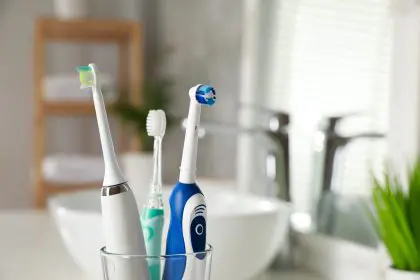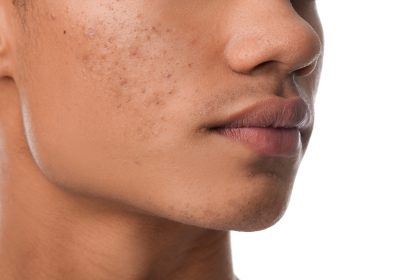Many of our daily hygiene habits stem from outdated beliefs or marketing rather than scientific evidence. Understanding what actually matters for cleanliness and health can help us develop better routines while avoiding unnecessary practices. Recent research challenges many common assumptions about personal hygiene, revealing simpler, more effective approaches to staying clean and healthy.
The daily shower myth
Despite popular belief, showering every day isn’t essential for most people. Dermatologists now recognize that frequent showering can disrupt the skin’s natural protective barrier. This disruption leads to decreased natural oil production and compromises the bacterial balance necessary for healthy skin.
Over-showering often results in chronic dryness, increased skin sensitivity, and greater susceptibility to infections. The skin’s microbiome, crucial for maintaining health and immunity, suffers from excessive cleaning. For most people, showering every other day while focusing on key areas provides adequate cleanliness without compromising skin health. Those who exercise or work in dirty environments might need more frequent showers, but gentle cleaning methods remain important.
Hand cleaning misconceptions
The debate between hand sanitizer and soap reveals important truths about effective hand hygiene. While sanitizer offers convenience, it can’t match soap’s ability to remove physical dirt and certain pathogens. Regular soap works by physically removing contaminants while disrupting bacterial cell membranes, providing more complete cleaning than sanitizer alone.
Research shows that proper handwashing with soap and water remains the gold standard for hand hygiene. The mechanical action of washing, combined with soap’s chemical properties, creates a more effective cleaning process than sanitizer can provide. While sanitizer serves as a useful backup when soap isn’t available, it shouldn’t become your primary hand cleaning method.
The antibacterial product fallacy
Marketing has convinced many that antibacterial products provide superior protection. However, research indicates these products offer no additional benefits over regular soap while potentially contributing to antibiotic resistance. Standard soap proves equally effective for regular hand washing and general cleaning needs.
The widespread use of antibacterial products in homes may actually harm long-term health by disrupting beneficial bacterial populations and potentially contributing to resistant strains. Save these products for specific medical situations where they’re truly necessary, and rely on regular soap for daily cleaning needs.
Oral hygiene realities
Aggressive tooth brushing often stems from misconceptions about effective dental care. Dentists emphasize that gentle, consistent cleaning proves more effective than forceful brushing. The goal is to remove plaque and food particles without damaging enamel or irritating gums.
Proper technique involves using gentle circular motions with a soft-bristled brush for at least two minutes. Focus on thoroughness rather than force, ensuring you clean all surfaces of your teeth. Regular flossing and professional cleanings complement this gentle approach, maintaining optimal oral health without causing damage.
Natural product perceptions
The assumption that natural products are automatically safer misleads many consumers. “Natural” doesn’t always mean better or safer for skin care and hygiene. Individual skin sensitivity, proper ingredient testing, and quality control matter more than whether ingredients come from natural sources.
Many natural substances can cause irritation or allergic reactions, while some synthetic ingredients have proven safety records through extensive testing. Choose products based on their suitability for your specific needs and skin type rather than natural claims alone. Consider factors like preservation methods and product stability when making selections.
Personal odor management
Common beliefs about body odor often lead to excessive product use. Understanding how body odor develops helps create more effective management strategies. Body odor results from bacterial breakdown of sweat, not from sweat itself. This understanding should guide prevention and treatment approaches.
Effective odor management focuses on controlling bacteria and moisture rather than masking smells. Proper clothing choices, regular washing, and appropriate product application often prove more effective than over-applying deodorants or antiperspirants. Consider lifestyle factors like diet and stress management as part of a comprehensive approach to body odor control.
Hair care facts
Daily hair washing, while common, often does more harm than good. Hair and scalp health benefit from a more balanced approach based on individual characteristics. Your hair type, scalp condition, and lifestyle should determine washing frequency rather than arbitrary rules.
Most people can maintain clean, healthy hair by washing every two to three days. This schedule allows natural oils to protect and nourish the scalp while preventing buildup of dirt and excess oil. Those with particularly oily or dry hair might need to adjust this schedule, but extreme frequent washing rarely provides benefits.
Moving forward
Developing evidence-based hygiene practices helps maintain health while avoiding excessive or harmful routines. Good hygiene supports health without requiring extreme measures or unnecessary products. Focus on consistent, gentle cleaning methods rather than aggressive or excessive practices.
Remember that individual needs vary, and what works for one person may not work for another. Pay attention to how your body responds to different hygiene practices and adjust accordingly. Stay informed about current research while maintaining practices that work for your specific situation.
This story was created using AI technology.















